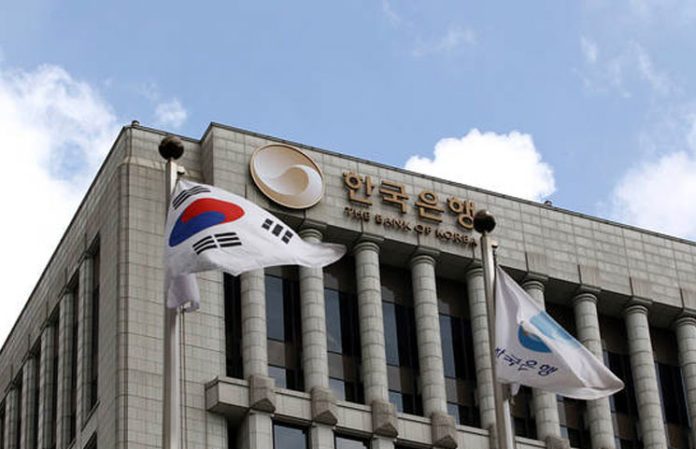
With Covid-19 rapidly spreading to the globe since March 2020, countries around the world, one after another, have restricted people’s movement. As this is raising concerns over a disruption in manufacturing activity as well as a contraction in demand that could dampen corporate earnings, the global stock markets have been in a severe correction. In the meantime, jitters in the corporate bond market have been growing further. It is fortunate that governments and central banks around the world are taking draconian measures they once used during the global financial crisis as part of effort to contain market unrest.
Korea’s market stabilization measures are also in line with global policy action. The Bank of Korea(BOK) cut its base interest rate, and the parliament approved a supplementary budget to contain the fallout of the virus’s worsening community spread. Also unveiled are government packages to stabilize financial markets and support small business owners and the self-employed, and the Bank of Korea’s liquidity provision plan. Because a social consensus was reached on the need for bold policy policy responses, there’s not much to add to discussions on the policy direction. However, it would be worth taking a closer look at a few issues on Korea’s monetary and fiscal policy that is closely linked to uncertainties ahead of Korea’s economic growth path.
1. The BOK’s role in stabilizing the corporate financing market
Amid mounting concerns about Covid-19’s impact on corporate earnings, nations around the globe one after another unveiled economic stimulus packages, with the primary focus placed on helping private sector firms to finance and keep their employees in post. In particular, central banks around the world have stepped up their effort to extend credits for purchasing commercial paper or corporate bonds in their bid to stabilize the corporate financing market. For example, the Fed in the US chose the Commercial Paper Funding Facility (CPFF) to buy commercial paper of investment-grade firms. The European Central Bank (ECB) followed suit by expanding its asset purchases to non-financial commercial paper, while the Bank of Japan topped up purchases of corporate bonds.
The fallout of the pandemic is expected to affect not only small business owners and the self-employed, but also large corporations such as airlines, hotels, petrochemical firms in Korea as well. To address the issue, there’re calls for the BOK to step forward to purchase commercial paper or corporate bonds for the sake of financial stabilization. However, it’s not possible under the current legal framework. Unlike other countries, Korea’s law doesn’t allow the BOK to directly purchase debt issued by non-financial firms. In the US, the Federal Reserve Act grants the Fed the right to provide government-approved emergency lending with no conditions attached to eligible collaterals at a time of crisis. Under the arrangement, a special purpose vehicle established by the Fed buys commercial paper which is used as collaterals for the Fed’s lending to the SPV. This makes an effect of the Fed directly purchasing commercial paper. In Europe, the range of securities eligible for ECB open market operations is stipulated not in the European central banking law, but in the ECB guideline, which enables ECB to act flexibly in terms of what securities the bank should buy to cope with a financial crisis. The Bank of Japan is also purchasing commercial paper, corporate bonds, and even exchange-traded funds and J-REITs because under government authorization the bank is allowed to buy assets that are not in the list of eligible securities for open market operations.
On the other hand, the BOK is unable to meet market expectations because it cannot purchase non-financial commercial papers or corporate bonds without a government guarantee. The Bank of Korea Act explicitly bans the BOK from buying debt securities of non-financial firms, but also limits open market operations to a strictly narrow range of securities such as government bonds and government-guaranteed securities, etc.Due to the institutional restriction, the BOK’s action to stabilize the corporate financing market in the past was limited to indirect support, e.g., indirectly helping the banking sector replenish capital, or extending special loans to state banks. This leaves the Bank of Korea with only two options to ease immediate market unrest: One of them is the BOK’s recently released plan for unlimited liquidity provision via repo operations, and the other is using the bond market stabilization fund established by the government. However, the bond market stabilization fund in Korea is mostly financed by financial institutions. As the coronavirus pandemic could prolong financial unrest, it’s important for Korea to form a legal basis that helps the BOK can serve as a lender of the last resort as does the Fed at a time of financial crisis.
Kang Hyun-Ju(2020.04.09) 코로나19 사태에 따른 외환시장 현황 및 시사점
2020-09호”
retrieved from http://www.kcmi.re.kr/publications/pub_detail_view?syear=2020&zcd=002001016&zno=1522&cno=5435










